#henry mcgee
Explore tagged Tumblr posts
Text
Bisbee Jr. vs. Finlay: Joshua W. Williams and the 1880 Florida Voter Suppression Controversy
Here's a story about my great grandfather, Joshua W. Williams, and other community members who stood up for democracy and against voter suppression in Suwannee County, Florida, in 1880.
William Gainer Williams (1869-1953), oldest son of Joshua W. Williams Currently, there is a lot of discussion around voting rights and potential voter suppression. Many are anxious to pass the John Lewis Voting Rights Bill in Congress. Sadly, this is an issue that has been of concern for 153 years since the passage of the Fifteenth Amendment in 1870. One case in point revolved around allegations…
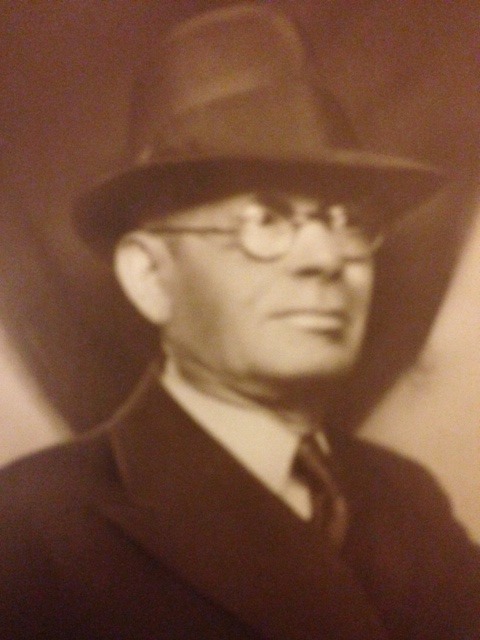
View On WordPress
#1880 Florida Election#Alexander Gainer#Bisbee v Finlay#Caleb Simpkins#Elijah Carruthers#George Rixford#Henry Farnell#Henry McGee#Horatio Bisbee Jr#Isreal Whitehurst#Joshua W Williams#Live Oak-Suwannee County-FL#Randel Farnell#voter suppression#WH Slate#William Evans
0 notes
Text
Random doodles

Yeah I'm multifandom...
Engo when is the comic coming out?
Me: Holy sh*t I forgotヽ((◎д◎))ゝ
#the amazing digital circus#the ghost and molly mcgee#desventure camp all stars#the owl house#amphibia#molly y henry detectives de neuracat#smg4#south park#murder drones#cookie run
24 notes
·
View notes
Text

These actors all apeared in the original 90's Flash series and returned to be a part of the CW series. If you didn't have prior knowledge of these actors former roles within The Flash, which were you most surprised to learn about?
#amanda pays#trickster#the flash cbs#tina mcgee#the flash#the flash cw#john wesley shipp#mark hamill#barry allen#henry allen#was no one going to tell me that amanda pays was in the og flash show I had to find out for myself#While looking for something else which will come soon(ish)#this does give me another idea for a series tho#also extremely jealous of og trickster get up. i only wish i could dress so magnificent
11 notes
·
View notes
Text
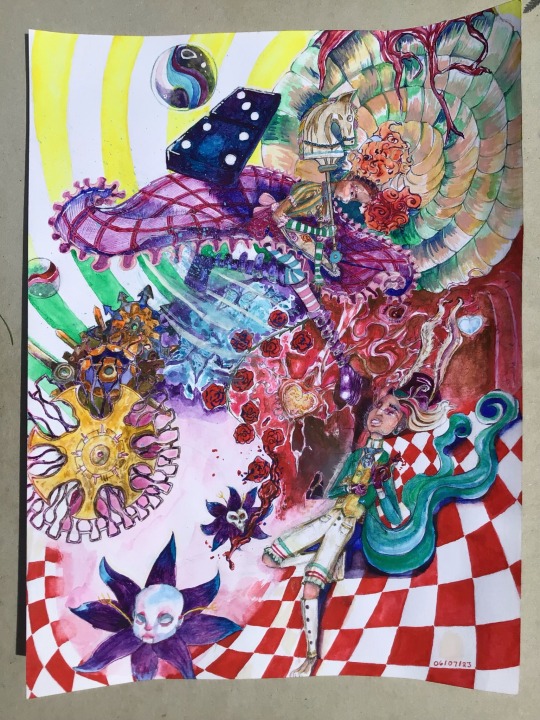
“Ahh Alice. We can’t go back home again. No surprise, really. Only a very few find the way and most of them, don’t recognize when they do. Delusions too, die hard. Only the savage regard the endurance of pain as the measure of worth. Forgetting pain, is convenient. Remembering it, AGONIZING. But recovering the truth is worth the suffering and our Wonderland though damaged, is safe in memory… for now…” - Cheshire (A:MR)
Alice Madness Returns au? No?
I painted this piece because honestly, I just wanted to draw Miss Elliot and Mr. Cocolotl in lavish adorable clothes. They deserve that I think. I didn’t have much planned at all, this is in no context but everything I painted was everything I always wanted to try, in a watercolor painting. I wanted to play around since I hadn’t painted in a while. I’m so glad that I stayed up one night and hyperfixated on my drawing of these two (I wouldn’t have been able to sleep, anyway)
Then I thought, how much these two stories kind of parallel each other. Coincidentally, but interestingly enough. It sounds ridiculous but I stand by this; I think a crossover au between Alice: Madness Returns and Wendell and Wild, or an asylum au that’s done with taste and care, and not stigmatizing would actually be pretty amazing.
The painting also marks a point of major progress from the beginning of my watercolor journey.
When I was first starting to get into watercolor painting and was heavily medicated and couldn’t draw or paint much. Let alone something that is in my head, I painted this:

And it’s cool! I still love it. But at the time I remember being so upset at the fact that I couldn’t articulate what things look like and draw like I was, and now am able to again. Granted I’ve learned a lot as well about how to best use the paint and how to draw. To get more comfortable with it, and try new things to get more desired effects. And as an artist it never gets boring and there’s always something new to discover. A little over two months of time and care little by little, was SO worth it. I’m beyond pleased with my progress and to say: “This is the new favorite of my things!”
Thank you so so much and, before the month ends I’d like to say I wish others who are in the lgbtq+ community a happy, peaceful pride month! Treat yourself, we deserve it. Thank you!
#wendell and wild#Spotify#traditional art#surrealart#pop surreal art#illustration#dollcore#kat elliot#raul cocolotl#painting#watercolourpainting#dreamcore#crossover#alternate universe#alice madness returns#alice in wonderland#stop motion#henry selick#jordan peele#american mcgee's alice#creepy stuff#fanart#surrealist art#artwork
39 notes
·
View notes
Text
Queen of Knives (I don't have my own copy of Smoke and Mirrors with me and didn't find a link)
Mahabharata
Paul Revere's Ride
Bisclavret
The Waste Land
The Cremation of Sam McGee
The Raven
Divine Comedy
The Rime of the Ancient Mariner
Okay so I still have a few names (notably Robert Frost, Edgar Allan Poe, Lewis Carroll and John Milton) in mind for at least another poll, maybe two or even three if you make suggestions. Thank you for the ones you've already made, by the way ! (I favor the lay of the Honeysuckle but it'll go in another poll just as the Shooting of Dan McGrew)
Yes I know this one is difficult too. Good luck.
My tag for this series is 'narrative poems'. Other poetry polls in my 'poetry' tag.
#polls#narrative poems#poetry#mahabharata#vyasa#queen of knives#neil gaiman#paul revere's ride#henry wadsworth longfellow#the werewolf#biclavret#biclavaret#marie de france#the waste land#t.s. eliot#the cremation of sam mcgee#robert service#the raven#edgar allan poe#divine comedy#dante alighieri#the rime of the ancient mariner#samuel taylor coleridge
39 notes
·
View notes
Text
Moodboard for Syverson's fics

#Captain Syverson x reader#sy x reader#henry cavill x reader#daddy!henry cavill x little!reader#daddy!syverson x reader#henry cavill imagine#mcgee's fics
49 notes
·
View notes
Text
Stickmintober Day 9: West Mesa
Today, at the West Mesa Penitentiary, we're asking: What is your opinion on paper mache?

Johnny Panzer: If it's anything like bendy straws, then WOO! What a good time!

Dave Panpa: People want to know my opinion? Gosh, where do I sta-

Johnny Panzer: "Mache" is French, coming from the root word "wet paper".

Blade McGee: I'm planning your murder right now.
Microphone: That's not the question I asked.

Rupert Price: WHY IS THERE A CAT HERE?!

Johnny Panzer: "Wet paper". Nonono, "wet paper-lalalalala".

Rupert Price: I'M ALLERGIC!
Dave Panpa (left): I'm Dave!
Rupert Price: ARGH, MY EYES!
Johnny Panzer (right): I hope you're hungry, Rupert! I'm making tuna!
-------------------------------------------------
...I know Johnny Panzer doesn't technically work with West Mesa, but I thought it would be fun. Also, I can't draw cats. See you tomorrow for Day 10 of Stickmintober!
9 notes
·
View notes
Note
What's your fav ship to write about and are you writing anything about them right now?
Oh that's a hard question!!
I have so many King ships to pick from! At the moment, Charlie and Abra is pretty fun to write for but I'm not currently writing anything about them! I have a lot of fun with Henry/Pete and Beaver/Jonesy and I'm actually working on a long one shot for them both right now BUT I'm sort of struggling with it!
Thank you for sending in this question!!
(Send me asks! Anything please! Questions, Ideas, Suggestions, Requests, anything at all!)
#thank you!!#stephen king#charlie McGee#abra stone#firestarter#doctor sleep#beaver clarendon#pete moore#Henry Devlin#gary jones#dreamcatcher
1 note
·
View note
Text
For Day 20 of @writersmonth, for the prompt “Different First Meeting”…I wrote a fic! Here’s the first chapter:
Summary: In one universe, the Wells and Allen families never cross paths until Iris West introduces her best friend, Barry Allen, to her youngest friend, Morgan Wells.
In this universe, Tina McGee is a little more determined to move her friends to Central, and that determination changes things.
#and it’ll be two chapters!#the flash#writer’s month 2023#writersmonth2023#tina mcgee#tess morgan#harrison wells#tragic trio#henry allen#nora allen#harritess#henrynora#(and the next chapter will have barry & morgan in SPADES)#childhood friends au#day 20: different first meeting#morgan wells au what-ifs
2 notes
·
View notes
Text
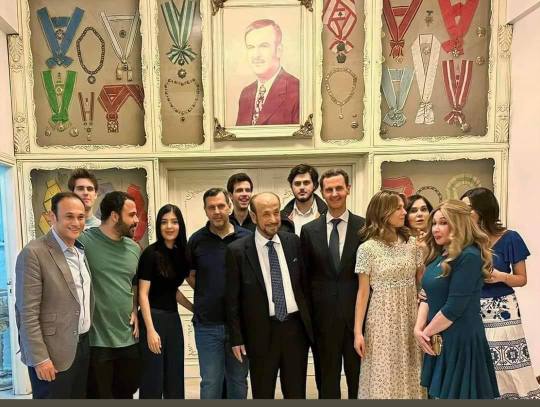
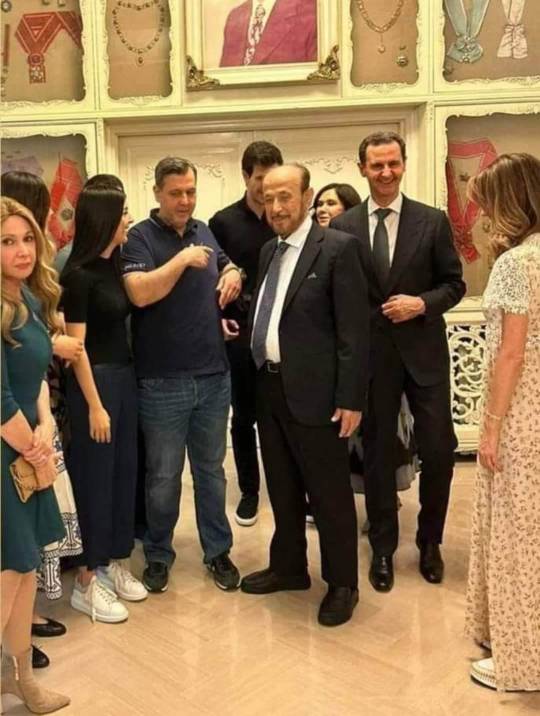
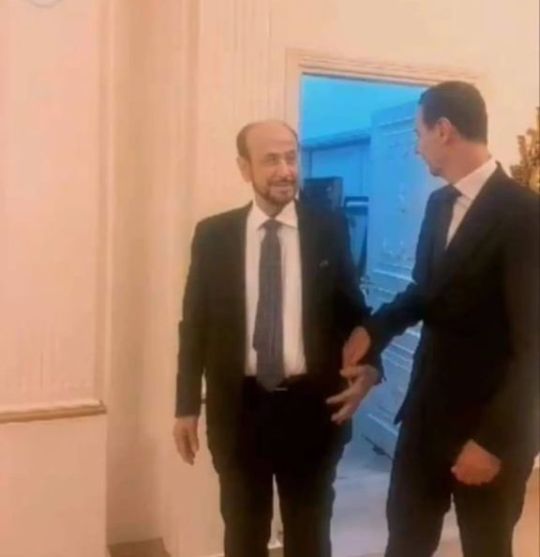
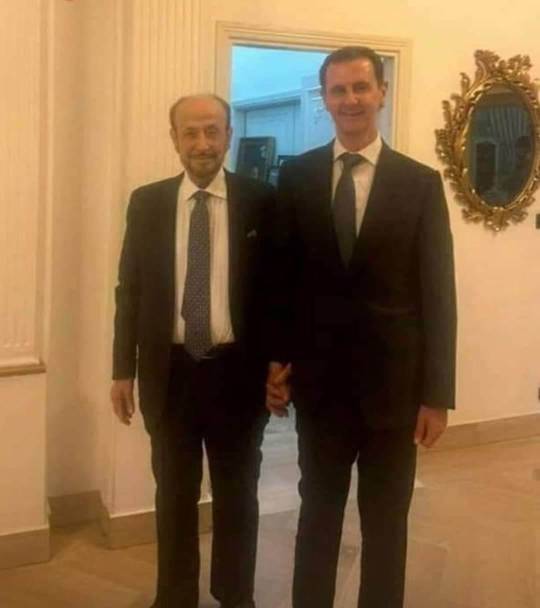
Family reunion!
Yes, that is Rifaat al-Assad, Hafez's brother who defected in the 80s after conspiring against him
#Rifaat al-Assad#Assad#Bashar al-Assad#Maher al-Assad#Asma al-Assad#Hafez al-Assad Jr#Zein al-Assad#Karim al-Assad#Sham al-Assad#Bassel al-Shawkat#Assads#Al-Assad family#Syria#that Henry McGee lookalike next to Cousin Bassel - and Henry McGee bore an uncanny resemblance to Hafez
1 note
·
View note
Text


53 notes
·
View notes
Text
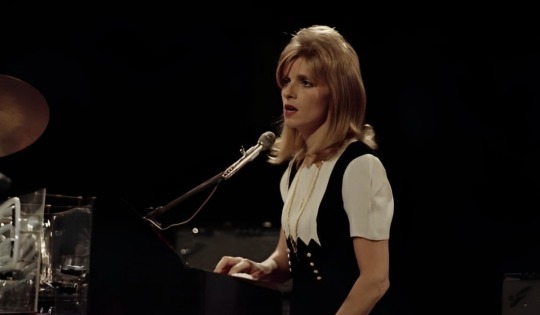
“ I have nothing but good to say about Linda McCartney, and I must be very honest about that. She’s was a lovely woman… (critics) didn’t know the strength of the woman. She was very, very brilliant about the whole thing. Paul & Linda were beautiful people, and very vulnerable at that particular point, and so protective of each other. They were always together. It became OK, there was nothing wrong at the end of the day. I know up until the end she really wanted to be as good as everyone wanted her to be. “
— Henry McCullough when asked about Linda McCartney in an interview with Garry McGee.
#linda mccartney#1970s#paul mccartney#john lennon#ringo starr#george harrison#the beatles#wings band#she is my everything
158 notes
·
View notes
Text
I had my sister guess DRDT talents and names. Let me show you the…. Results:
MY SISTER SAYS:
- Veronika and Arei are both named Beverly according to her. Talents are Optician and Tennis Player.
- Xander is actually named “The Invisible Guy” and his talent is disappearing and reappearing
- Charles does not have a name for legal reasons, and “her talent is malpractice” (yes she thought Charles was a girl, this is not the last time she’ll get a gender wrong)
- Ace is a brony named “Mr. Sparkles”. When I told her he was a jockey she cheered… until I told her he hated horses and then she was confused.
- Min’s name is “Wooooo” and she talks to ghosts
- Whit works at the DMV and was genetically bred by the government. Also his name is Demvy
- Arturo is a spy, his spy name is “Brad” and his real name is Johnnie
- Teruko is named Tyler and is a Fight Club Owner. She knew Teruko was a girl btw, she didn’t mix genders up
- David’s name is Spitty McGee. “Professional Nonsense-r”
- “His name is Henry and he’s a street dancer”, “That’s a girl” “He comes out as a trans man in chapter 4” (About J. I’m not joking. I did not tell her my HC, I know this sounds fake, but this actually happened.)
- “They don’t deserve a name and they have terrible fashion sense. Their talent is Anti Dresser” - My sister about Levi. Her response to his real talent? “Someone needs to fire him.”
- Rose’s name is now….. Leonardie.
- Hu is “Flora the florist. Master of alliteration!”
- Nico is “Garreth, a furry who roleplays”
- Eden is now named Brenda and is a tap dancer.
#danganronpa despair time#drdt#j moreno#j rosales#ace markey#arei nageishi#eden tobisa#veronika grebenshchikova#charles cuevas#david chiem#min jeung#arturo giles#nico hakobyan#xander matthews#levi fontana#teruko tawaki#whit young#hu jing#rose lacroix
55 notes
·
View notes
Text
France, America and the Love for 'Liberté'
Warning: wall of text. This post is nearly 5000 words long.
TL; DR: France contributed to the formation of America. Why did Himaruya design France like that? Some relevant information about the relationship between France - UK and France - US.
Part 1: The Love for 'Liberté'
I've talked about this a lot, but now I'll summarize it a bit. Basically, it's not without reason that I assume that France played a huge role in giving birth to America.
The reason the French supported America in the war for independence from Britain included 2 reasons:
1. Competition with England. This is too obvious.
2. The French Enlightenment caused the French to risk their lives in North America. Their help to Americans is to realize their dreams and ideals of liberty and republican government. (Museum of the American Revolution, unknown)
Helping America is not only the French monarchy, but also the French people. The Americans' determination to make a revolution created a great wave throughout France (Office of the Historian, unknown). It can be said that America was born from the French Enlightenment movement. Americans were directly taught by the French about ideas about human equality. At the heart of every American uprising is Enlightenment thought. In addition, precisely because Enlightenment ideas were transmitted directly from France to America, it was from America that this idea was spread across the Atlantic (Marks, 2018).
We can mention some typical French figures who participated in the American Revolution and some Americans who were influenced by France. The most famous Frenchman of the American Revolution was the Marquis de Lafayette. He joined this war at the age of 19, with the belief that he would bring glory and justice to America, even rising to the rank of major general in American army (Shaw, unknown). Pierre Charles L'Enfant, the designer of Washington DC, was French (Museum of the American Revolution, unknown). Thomas Jefferson, America's founding father, a native of England, was a true francophile. He was one of the first US ambassadors extraordinary and plenipotentiary to France, and is extremely passionate about the French lifestyle (The French Life, unknown). Benjamin Franklin was the main factor why the French were inspired and fervently supported the American Revolution (Office of the Historian, unknown). “Give me liberty or give me death!”, Patrick Henry's declaration at the Second Virginia Convention (1775) was influenced by the saying "Man is born free and everywhere he is in chains.” by French writer Jean-Jacques Rousseau (Mcgee, 2020)
The American Revolution is called the Second Hundred Years' War between France and England by some historians (Shaw, unknown). From 1775 to 1777, France secretly supported America by providing weapons and money to America (The Editors of Encyclopædia Britannica, unknown). When the Franco-American Alliance was signed in 1778, France openly supported the United States, and "brought its full military might against Britain" (Shaw, unknown). In terms of the treaty, “peace could be arrived at only by mutual French and U.S. consent" (The Editors of Encyclopædia Britannica, unknown). The British attempted to divide the French-American alliance and failed, and only when Britain and France resolved their differences could the Americans sign the treaty of Paris (Mcgee, 2020). French support played an important role in the British surrender at the Battle of Yorktown in 1781 (Office of the Historian, unknown). In the Siege of Yorktown painting hung in the US Capitol, the Bourbon flag and the American flag are placed parallel to each other. Admiring the French was even considered “a patriotic duty” for American colonists (Kaplan, 1956, p.34).
In order for America to be independent, the French army at that time gathered troops to fight the British army in colonies around the world. Because Britain had to spread human resources and resources across battles in other colonies, America became a secondary problem, meaning that if Britain did not let go of the 13 colonies in North America, the entire British empire would collapse. (Shaw, unknown). In 1776, France transferred to the United States about 300,000 pounds of gunpowder, 30,000 muskets, 3,000 tents, more than 200 cannons and clothes for 30,000 soldiers (Museum at Yorktown, unknown). If only before 1777, the amount of money that France provided to America was 1.3 billion livres, the American army was completely dependent on France. It was the 1778 treaty between America and France that gave the Americans legitimacy, thereby receiving additional support from other European powers. After that, 12,000 French soldiers, 22,000 naval personnel and over 63 warships participated in the war (Mcgee, 2020). In an unofficial source, meaning I read from a group of American friends, the statistics show that more French people died because of the American war of independence than Americans died because of their homeland (I haven't found an official source for this detail yet, so don't take it as fact. I would appreciate it if someone could fill me in on this detail). The costs were poured into North America causing France's economy to collapse and the French Revolution to occur, ending the French monarchy (Shaw, unknown). My opinion that France is a mother who sacrificed her life to give birth to her American child is not without basis.
After the defeat at Yorktown, when the British surrendered, they simply marched back toward the French, thereby denying the efforts and role of the Americans in this war of independence. French Major General de Lafayette was very angry, so he ordered his team to play Doodle Yankee (a song composed by the British to mock the French). Immediately, the British turned around and looked at the Americans. (Fleming, 2013)
At this point I will stop talking about the American Revolution, let's talk about other factors throughout the diplomatic history between America and France:
- The relationship between these two countries is not always smooth, even quite contradictory, but it is a fact that France is the first and oldest ally of America and these two countries have never really conflict with each other.
- French historian Édouard de Laboulaye proposed the idea of gifting the Statue of Liberty to the United States in 1865 to commemorate 100 years of American independence from England (1865 was the year the United States abolished slavery). Then, sculptor Frédéric-Auguste Bartholdi designed this statue. Journalist Joseph Pulitzer wrote: “It is not a gift from the millionaires of France to the millionaires of America, but a gift of the whole people of France to the whole people of America.” (Little, 2021)
- Many times America and France almost became enemies, but fate did not let these two countries stand on two different front lines. The most spectacular case of reversal is about New Orleans. After Thomas Jefferson became president, he wrote: “There is on the globe one single spot, the possessor of which is our natural and habitual enemy. It is New Orleans, through which the produce of three eighths of our territory must pass to market.” (Worsham, 2002). That is France, the country that controls all of Louisiana including New Orleans. However, no one expected that the United States only needed to buy the entire Louisiana region from France in 1803 and the problem would be solved. Sold by France to Louisiana, America doubled in size, giving America access to the world's largest inland waterways. Tim Marshall wrote that, thanks to this purchase, “the roadmap to American greatness flowed.” (Marshall, 2016) (I read this in Vietnamese translation, and I translated it into English. Therefore, the quote may not be very accurate. Reading this gave me goosebumps)
- In 1964-1966, conflicts between America and France increased. During these years, France has continuously made statements and policies contrary to US policies, causing America to continuously promote anti-French media. Regarding this move, the French president at that time said: "It is in the United States' interest to have by their side not a satellite, but an independent ally, always by their side in times of danger." (Journoud, 2011) (I read this in Vietnamese translation, and I translated it into English. Therefore, the quote may not be very accurate). In 1966, France withdrew from the NATO military command structure. The French President demanded that all NATO bases leave French territory. NATO headquarters has been moved from Paris to Brussels. (CVCE.eu, unknown)
Keep in mind that most of the sources I read are American and British. There is only one source I got from the French. This means there is no French agenda here.
Part 2: Why, Himaruya?
I will add a little information about the cold period between France and America. I will no longer talk about France and America from Hetalia's perspective, but about France and America in reality. The purpose of part 2 is to answer the question: why did Himaruya design France like that? In this section, I only speak about the knowledge I have gathered without citing sources. I'm too lazy to find the source for this knowledge. So it could be wrong. You can read to learn more for yourself.
Some information I summarized from the book "De Gaulle et le Vietnam" by Pierre Journoud, some information I collected from other articles (which I did not save). The book "De Gaulle et le Vietnam" is a massive work, and an attempt at reconciliation between France and Vietnam, which describes the process of French President de Gaulle from a colonialist to a supporter of Vietnam's independence. This is a book sponsored and published by the French Embassy in Vietnam and recommended by scholars in Vietnam.
Okay, now let's get to the main story:
In official Hetalia, author Himaruya tends to "deny" the character France. The reason is because this person is an international student in New York, so he is greatly influenced by the American perspective on France. A large portion of Americans think of France as a promiscuous, sex-addicted b*tch. Why? This has an unfortunate history. There are 3 factors:
1. World War II. Allied troops landed in France... you know, during wartime, hunger, there will inevitably be prostitution with soldiers to get food. At that time, prostitution was widespread and terrible. I read an article that said this: Anglo-American troops saw the liberation of Paris not only as a symbol of Europe's freedom from Germany, but also as "their entertainment playground". When American troops arrived at France's Petit Palais, the authorities also gave free condoms to American soldiers so they could go with prostitutes there. The impression of such a place of debauchery and prostitution left a very deep impression in the minds of the British and Americans about the image of France being associated with debauchery and prostitution.
But the fact that the Allied troops came to France and brought back to their country such a bad impression of women was not the end. That myth should have disappeared in 1 or 2 generations. Everything continues to the second problem I will talk about later.
2. Indochina War.
That's right, my country is involved. During the First Indochina War, France returned to Vietnam, but after the battle of Dien Bien Phu, it was defeated and withdrew. America jumped in with the anti-communist flag, with the goal of not letting communism encroach on even one inch of land in the world, because they think that if Vietnam becomes a socialist country, the domino effect will turn the entire Pacific Ocean into a communist ocean.
What is worth mentioning here is that, after the French were defeated in Vietnam, they learned from the experience that the Vietnamese people needed independence more than anything and that Vietnamese nationalism was very strong, so the war Indochina was fundamentally wrong from the start. After France had completely accepted that it had lost and was wrong in Vietnam, they saw America jumping into Vietnam as nothing more than a new form of colonialism, and the Republic of Vietnam as nothing more than an American puppet. So at that time, France looked down on the Republic of Vietnam very much, and even that look increased when Ngo Dinh Diem died. President de Gaulle, after France's defeat in Vietnam, began to be more aware of the so-called Vietnamese nationalism and sympathized with the government of the Democratic Republic of Vietnam. He has repeatedly advised American presidents that with this situation they will be completely defeated in Vietnam and they should withdraw soon. Kennedy listened but did not withdraw, Johnson showed open hostility towards de Gaulle, Nixon escalated the war to a terrible intensity.
Let's go back to the world war a bit. World War II N4zi Germany occupied France and established the French Vichy government. General de Gaulle could not accept the French Vichy government, so he went to England to gather French forces abroad and in the colonies to establish the France Libre government in exile. Winston Churchill absolutely liked Charles de Gaulle and supported France Libre a lot (Churchill himself was a Francophile), but Roosevelt hated de Gaulle very much, made things difficult for France Libre and even recognized the Vichy government, because Roosevelt felt de Gaulle's nationalism was too strong, and under de Gaulle's influence, France would not "listen to" America after the war ends (and indeed he was not wrong). Britain needed America to fight N4zi Germany, and always advocated peace with America, so Churchill was torn between Roosevelt and de Gaulle. De Gaulle was a proud man, so even though he sought refuge in England as an exile, de Gaulle did not accept Britain's excessive demands about future post-war France for aid in the present. As a result, Churchill and de Gaulle argued a lot, hurled the harshest words at each other, and even almost considered each other enemies even though the two sides were allies and France was more or less relying on Britain.
On one occasion, de Gaulle and Churchill argued with each other. When de Gaulle went back, people asked de Gaulle what he and Churchill had argued about, and de Gaulle said: I asked him, "who did you choose in the end?", then he replied, “between Europe and the ocean, I will always choose the ocean”, I had nothing more to say. When people asked Churchill, Churchill only sadly said that de Gaulle was just losing his temper and needed to cool his head.
America's attitude of rejecting France Libre continued until the communist movement in France grew strong (at that time, France was the place of the largest communist party in Europe) and attempted to overthrow France Vichy. America did not want communists to take power in France, so they reluctantly nodded and supported de Gaulle's France Libre. However, everything was still extremely forced, because the head of France Libre, de Gaulle, was only informed about the D-Day landings two days before. De Gaulle was extremely angry but could do nothing.
Through it all, de Gaulle seemed always to be wary of Anglo-Saxon circles. Since France gained independence, the policy of French president had always been to try not to depend on any country. He advocated for France to independently develop nuclear weapons, withdrew France from command of NATO, forced allied troops to withdraw from French soil, made peace with the Soviet Union, established diplomatic relations with the People's Republic of China and vetoed Britain's entry into the EU. America knew de Gaulle did not want to depend on America and this was a friction dating back to the World War.
Returning to the Indochina war and France's opposition to US intervention in Indochina. Through the experience of France's failure, de Gaulle saw very clearly that America would soon be bogged down and defeated in Vietnam. De Gaulle himself did not like the government of the Republic of Vietnam because the Republic of Vietnam was too dependent on the United States. At that time, France bluntly made statements that France did not support US intervention in Indochina, that everything was wrong (something very few capitalist governments dared to do at that time. And according to what I read, at that time about 60-80% of the overseas Vietnamese people there did not like the government of the Republic of Vietnam), and even withdrew France from SEATO, acting as an intermediary diplomatic channel with the Democratic Republic of Vietnam. With de Gaulle's "separation" moves, America lost all patience. To America, France is like a crazy person who never listens to America's wishes. And America believed that France's actions were because France was bitter towards them because they had taken France's place in Indochina, and America also brought up the old story of de Gaulle and Rooselvelt during the World War, claiming that de Gaulle was really a exploitative and ungrateful for America's help, that Roosevelt did not misjudge back then.
America believed that France was a fool, out of date but always liked to criticize America, but America could not take any tough measures or boycott France. France is the gateway to Europe. At that time communism was strong, America could not take such risks. So America used the media. During Johnson's entire period, the media and news always smeared and ridiculed France (The "white flag" meme is one of them). The Republic of Vietnam at that time also had a case of young men attacking the French embassy and destroying the works left by France.
Of course, among the media measures back then was the myth of prostitutes from World War II. America had dug up the prostitution narrative (which I mentioned in part 1), promoting that sexualized agenda in our showbiz world (“Voulez vous coucher avec moi ce soir?” actually from an American movie, not French). Since then, this myth has spread throughout the world and is especially prevalent in Anglo-American and Anglo-Saxon circles.
3. There is one more factor but I haven't learned much about this case. That is a big part of what makes up this stereotype France = b*tch, which also comes from the feudal period of France. At that time, the case of nobility couples getting married but both having affairs and debauchery and luxury started from the French palace of Versailles. King Louis XIV was the reason for this. Louis XIV believed that when he promoted adultery among the nobility, everyone would turn to "fight" with each other, thus no longer having the mind to overthrow him, and his position would be more secure. And the consequences of that debauchery were very horrifying, it gave birth to a series of generations of philosophers and literati who were sick, dissatisfied, and immersed in pleasure, lasting from the feudal period, to the period of Enlightenment philosophy, the French Revolution, flared up again in the 70s and 80s and that disorder and sickness still affects France to this day.
Part 3: Some related information and personal opinions
I would like to add a little more of my thoughts: During World War 2, America was in a position to help France. Because if America had not jumped into the war, instead of the Allies liberating France, it would have been the French Communist Party that would have overthrown the f4scists. France was one of the European countries most sympathetic to the red wave, so much so that at that time the French Communist Party was the largest Communist Party in Europe. There were many famous French philosophers who are Marxist.
Roosevelt clearly considered ignoring France Libre to recognize the Vichy government if the French red wave was not so strong. So at that time, I think, sooner or later France would be able to overthrow the f4scists, but the problem was which side to overthrow, America jumping in was also partly to competed with the French Communist Party. Imagine America jumping in without time and the Communist Party taking power in France, I don't know how much the world situation would change after that.
General de Gaulle was almost obsessed with the saying "between Europe and the ocean, I will always choose the ocean". After he received that answer from Churchill, his attitude towards Britain almost completely changed.
Later, France turned to join hands with its old enemy aka Germany to establish the European Coal and Steel Community mainly to counterbalance the influence of Britain and America, even France was a direct veto country when Britain applied to enter the EEC. This was like a slap in the face of Britain. The British are still very tormented about this case, saying "I saved you from them, I emptied the treasury for you, but in the end you would rather go with them than with me.". But in fact, the fact that France established the EEC with Germany in the first place was due to Britain's previous answer. It's just that the British and American media, when mentioning the EEC and calling France ungrateful, often don't mention Churchill's quote.
When General de Gaulle came to England in exile, the reason General de Gaulle did not compromise with Britain's demands was because France was "too weak to bow" at that time. This sentence makes me think that France is too proud to be submissive or bow its head, when even in exile, France was still determined not to bow to England, and later they did not bow to America the way Britain had bowed to America for nearly a century. Thanks to that, compared to other European countries, France now has a certain independence and is not too dependent on the US, and for the US, France is a relatively "difficult" ally. This is an "ally", not a "junior" labeled an ally, not the type that obediently listens to the US. America was very bitter about this and cursed France for being ungrateful, France only replied: "It is in the United States' interest to have by their side not a satellite, but an independent ally, always by their side in times of danger."
To talk about Churchill's answer, in fact, Britain becoming dependent on America was a rather bitter process for the British empire.
After the end of WW2, it was America that broke Britain's imperial position. If you read about West Asia (also known as the Middle East), a large part of the West Asian conflict took place because the US took over all of Britain's interests in the oil issue in West Asia.
A little background: The essence of the British empire and colonial system was market protection. That means the market between the mother country and the colony is a closed market, the goods of the mother country and the colony will be exported and consumed with each other, but will not export or import additional goods from a third country.
There is a saying that in WW2, the Allies won thanks to "Russian blood, British intelligence and American steel". That means World War II was won thanks to a large amount of weapons produced in the US. During World War II, America gradually realized their production potential, they themselves did not expect they had such great production power. The problem was that after the war ended, they lost their trading market. Their production capacity was still so strong, but they did not know where to export their goods. So they turned their attention to the British colonies: at that time Britain was accounting for 25% of the world market.
25% of that market was monopolized by the UK. So how can the UK released 25% of that market? American answer: Breaking Britain's imperial position, breaking Britain's monopoly on exporting goods to the colonies. At that time, Britain was in debt of more than 200% of GDP, the treasury was completely exhausted, the country was in ruins and British colonies began to rebel. The UK was in a desperate situation. In the end, Britain had to bow to America, aka, from the empire on which the sun never sets came to the Commonwealth. Britain withdrew from that 25% market share, and the former British colonies were now encroached by the United States to gain market share. That's why Britain was so bitter when France created the ESEC/EEC. Because the position from an independent empire to becoming a subordinate of America was something the British were forced to do, not wanted.
Part of the reason why Britain can somewhat accept a junior partnership with the US is because America's leaders are all of British descent. During the American Revolution, even after the revolution was successful, Americans still honored their old "motherland". Why is that, because in fact the leaders of the uprising were all white people from England. England has a characteristic that in any colony that has white British people, the people of British descent in that place are treated well by the mother country. When Churchill told de Gaulle that he would rather choose the ocean than choose Europe, perhaps he himself had the thought that Britain would decline, but would rather be America's subordinate - where there are England's own white British descendants (so somehow England continues its glory) rather than being equals with European countries.
In Charles de Gaulle's War Memoirs, the author said this: before WW2, Berlin was getting stronger and the risk of Germany going to war was in sight, but London ignored Berlin because London wanted that when France and Germany went to war, France would depend on Britain.
That's why when WW2 happened, de Gaulle argued with Churchill a lot and refused to compromise because de Gaulle did not want to fall into the same situation as London thought before, which meant becoming a France dependent on Britain. This has led to the UK moving towards the US, aka a "globalized" UK, while France forms the ESEC/EEC with Germany so that Europe can counter the Anglo-Saxon world. And another point in current French politics is that now there is a large part of the French demanding Frexit, because French agriculture has been severely damaged by the EU.
In general, the more I read about the Anglo-French relationship, the more complicated it became. French assumed that WW2 happened partly because Britain deliberately made France dependent on Britain (I'm not saying that England actually thought that way. I mean that from the French perspective, they felt that way). Then, when things really happened like that, Britain exhausted its national treasury in WW2 (for France and for themselves). However, when questioned by de Gaulle, Churchill replied that Britain would always look to the ocean instead of choosing Europe. Because of receiving such an answer, France would rather establish an EEC with Germany than be pro-British after WW2. Then the British became angry with the EEC. Then Britain asked to join the EEC. France vetoed Britain many times. Britain joined the EU for a while then wanted to leave. Now some French people want to leave as well.
-
Oh, what a long story. I wonder how many people read this entire post. I'm from a country that's not France, England or America, so except for a bit of patriotism that I expressed in part 2, I think this is a perspective that isn't too biased towards either side. Personally, I love America very much, America is strong and brave, that's the truth. America's flaws are obvious, but its strengths are equally beautiful and shining. This is a country with many defects and advantages like any other country. So I don't agree with the way everyone antagonizes America as a villain.
Because more than half of this article is not properly sourced, but is written based on my memory and opinion, I welcome your additional comments and polite corrections. I would like to emphasize again, you should not refer to this post as "fact", always fact check everything in this post.
Thus, the relationship between America and France is more complicated than most people think. Not only England, France also contributed greatly to the birth and shaping of America. Through the above events, we can conclude that the American spirit of Liberty was completely inherited from France. France is the country that America (even if he wanted to) could never hate (and vice versa). Even if you don't look at it from the perspective of France being America's mother, it can at least be affirmed that France is America's "tutor". Without France, there would be no America today. America's existence is a continuation of England's ambition and an honoring dignity of France.
To conclude the post, I would like to mention that I once saw a Japanese artist post a tweet like this:
"I found out that Frank means 'free man'
So, from ancient times until now, he hasn't changed at all."
References:
CVCE.eu (unknown). France and NATO. 31/12/2023: https://www.cvce.eu/en/recherche/unit-content/-/unit/02bb76df-d066-4c08-a58a-d4686a3e68ff/c4bbe3c4-b6d7-406d-bb2b-607dbdf37207
Fleming, T. (2013). A short history of "Yankee Doodle". 31/12/2023: https://allthingsliberty.com/2013/12/short-history-yankee-doodle/
Journoud, P. (2011). De Gaulle et Vietnam. Éditions Tallandier.
Kaplan, L. S. (1956). The philosophes and the American Revolution. Social Science, 31(1), pp. 31-35. https://doi.org/10.2307/41884421
Little, B. (2021). Why the Statue of Liberty Almost Didn't Get Built. 31/12/2023: https://www.history.com/news/statue-of-liberty-funding-pulitzer
Marks, J. (2018). How Did the American Revolution Influence the French Revolution?. 31/12/2023: https://www.history.com/news/how-did-the-american-revolution-influence-the-french-revolution
Marshall, T. (2016). Prisoners of Geography. Elliott & Thompson.
Mcgee, S. (2020). 5 Ways the French Helped Win the American Revolution. 31/12/2023: https://www.history.com/news/american-revolution-french-role-help
Museum at Yorktown (unknown). How did the French Alliance help win American Independence?. 31/12/2023: https://www.jyfmuseums.org/learn/research-and-collections/essays/how-did-the-french-alliance-help-win-american-independence
Museum of the American Revolution (unknown). France and the American Revolution. 31/12/2023: https://www.amrevmuseum.org/france-and-the-american-revolution
Office of the Historian (unknown). French Alliance, French Assistance, and European Diplomacy during the American Revolution, 1778–1782. 31/12/2023: https://history.state.gov/milestones/1776-1783/french-alliance#:~:text=Between%201778%20and%201782%20the,protected%20Washington's%20forces%20in%20Virginia
Shaw, T. (unknown). France in the American Revolution. 31/12/2023: https://www.battlefields.org/learn/articles/france-american-revolution
The Editors of Encyclopædia Britannica (unknown). Franco-American Alliance. 31/12/2023: https://www.britannica.com/event/Franco-American-Alliance
The French Life (unknown). Thomas Jefferson: Founding Father & Francophile. 31/12/2023: https://www.thefrenchlife.org/2017/10/11/famousfrancophile/
Worsham, J. (2002). Jefferson Looks Westward. 31/12/2023: https://www.archives.gov/publications/prologue/2002/winter/jefferson-message.html
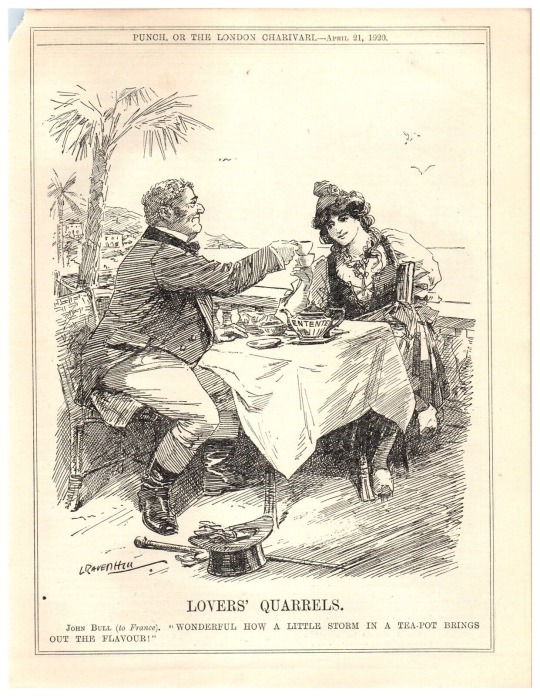
#fruk#aph france#aph fruk#aph england#hws fruk#hws france#hws england#ukfr#aph ukfr#hws ukfr#aph america#hws america
39 notes
·
View notes
Text
Does anybody have any oneshot idea offers for: Digimon Adventure, Adventure Time, The Owl House, Gravity Falls, Over The Garden Wall, Avatar: The Last Airbender, Wander Over Yonder, The Midnight Gospel, Rapunzel's Tangled Adventure, My Little Pony: Friendship is Magic, Hilda, Centaurworld, The Amazing World of Gumball, Pokemon, Don't Hug Me I'm Scared, The Ghost and Molly McGee, Little Witch Academia, Kipo and the Age of the Wonderbeasts, Glitch Techs, The Amazing Digital Circus, Undertale, Deltarune, Kirby, Legend of Zelda, FNAF, Percy Jackson, Cuphead, Skylanders, Minecraft, Oneshot, Dust: An Elysian Tale, Henry Stickmin, Ruby Gillman, BNA
#Digimon Adventure#Adventure Time#The Owl House#Gravity Falls#Over The Garden Wall#Avatar: The Last Airbender#Wander Over Yonder#The Midnight Gospel#Rapunzel's Tangled Adventure#My Little Pony: Friendship is Magic#Hilda#Centaurworld#The Amazing World of Gumball#Pokemon#Don't Hug Me I'm Scared#The Ghost and Molly McGee#Little Witch Academia#Kipo and the Age of the Wonderbeasts#Glitch Techs#The Amazing Digital Circus#Undertale#Deltarune#Kirby#Legend of Zelda#FNAF#Percy Jackson#Cuphead#Skylanders#Minecraft#Oneshot
14 notes
·
View notes
